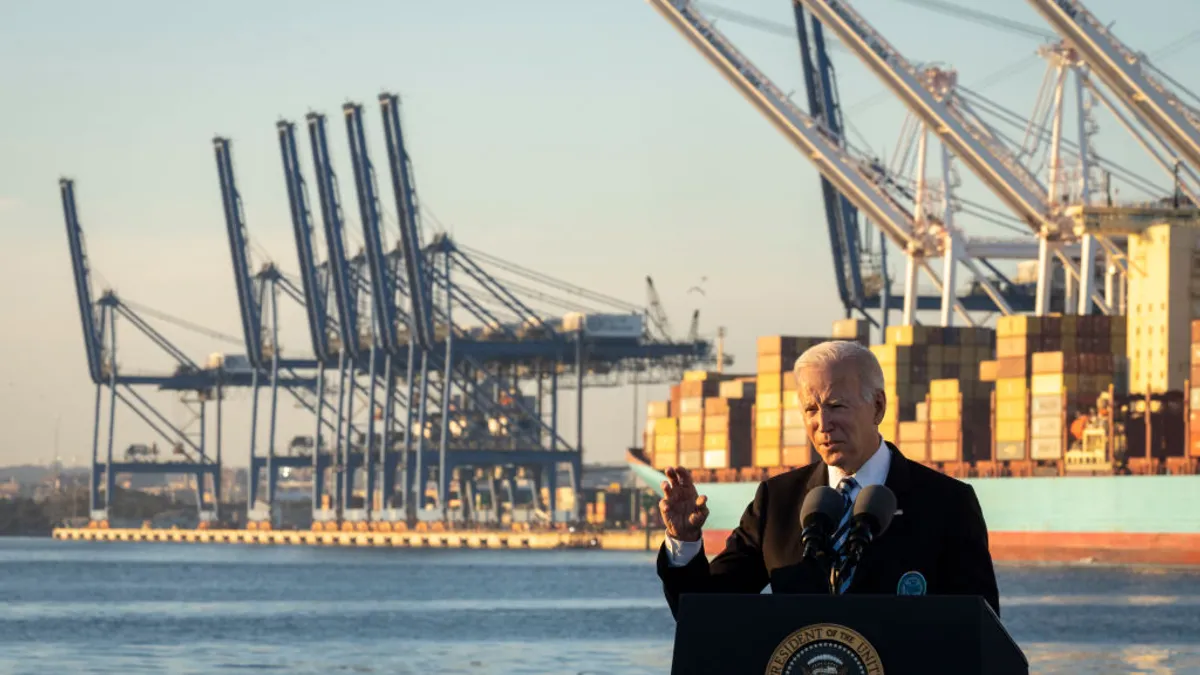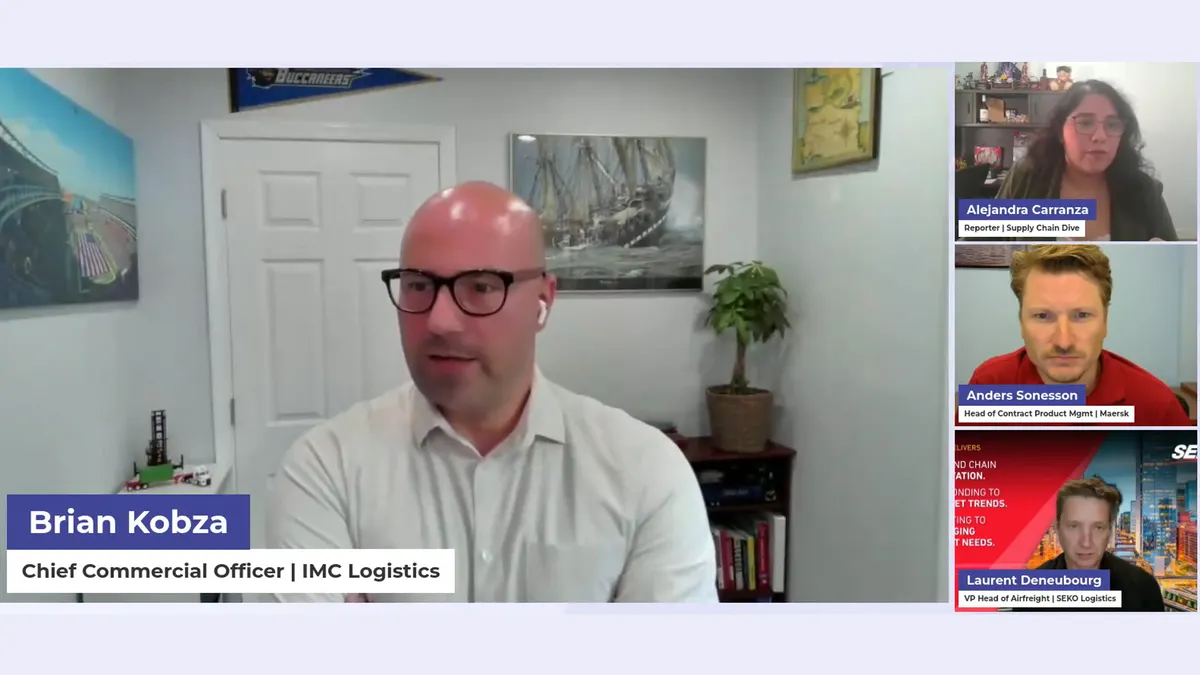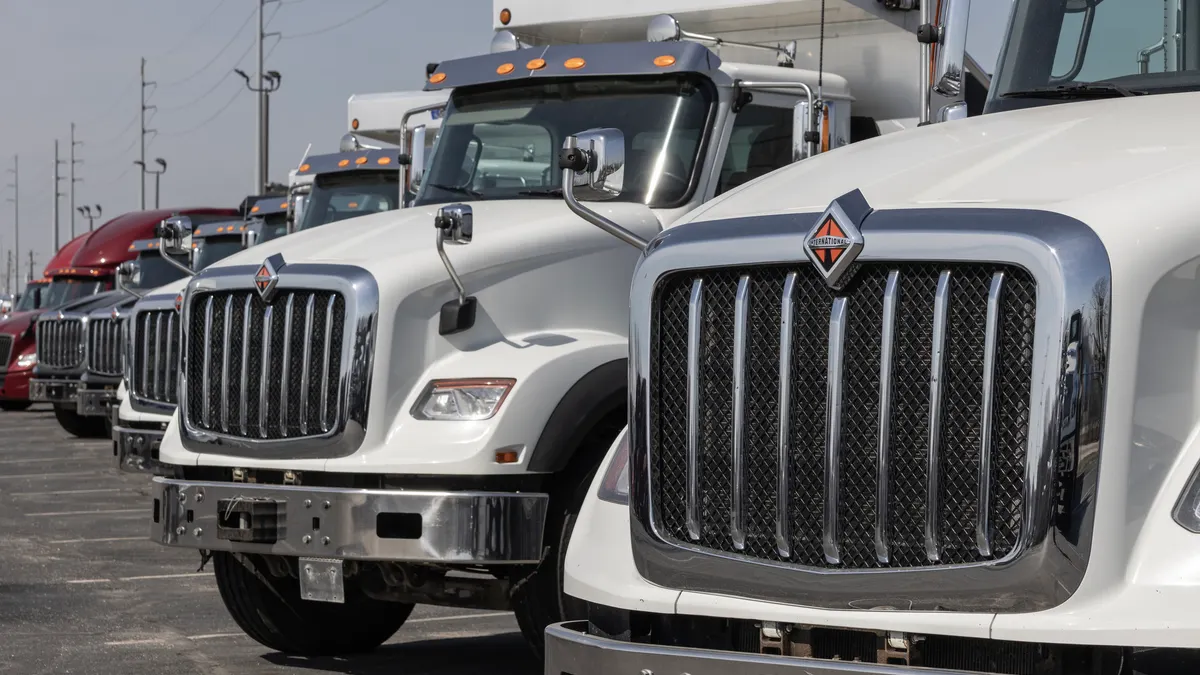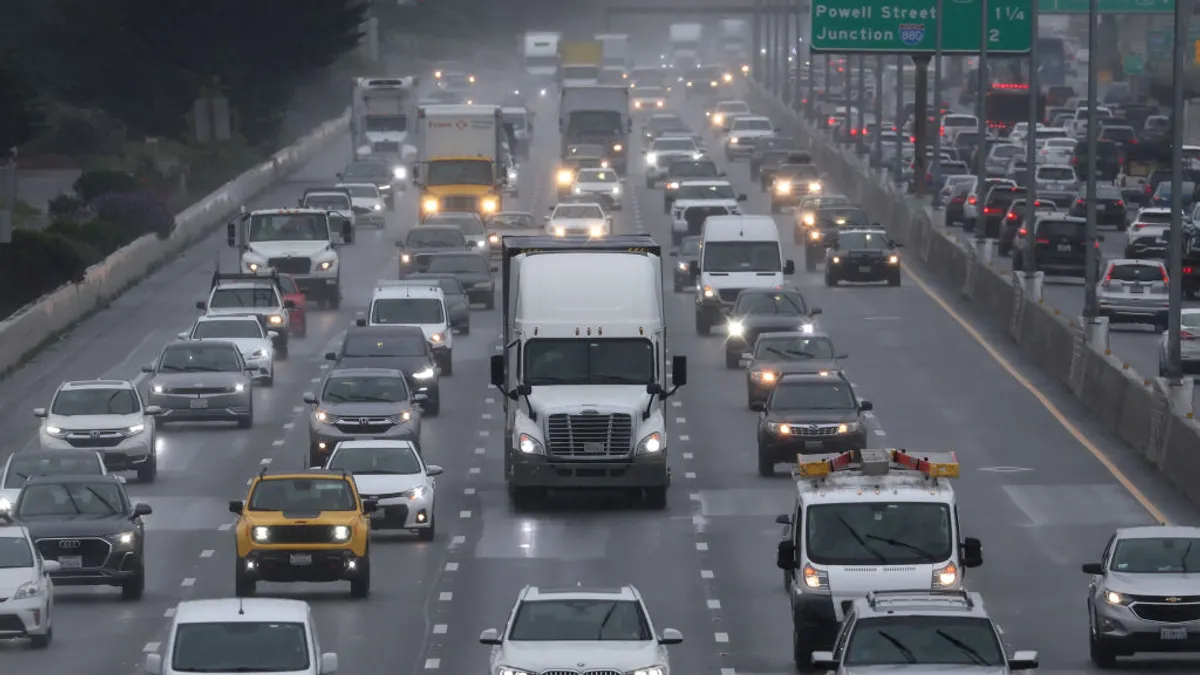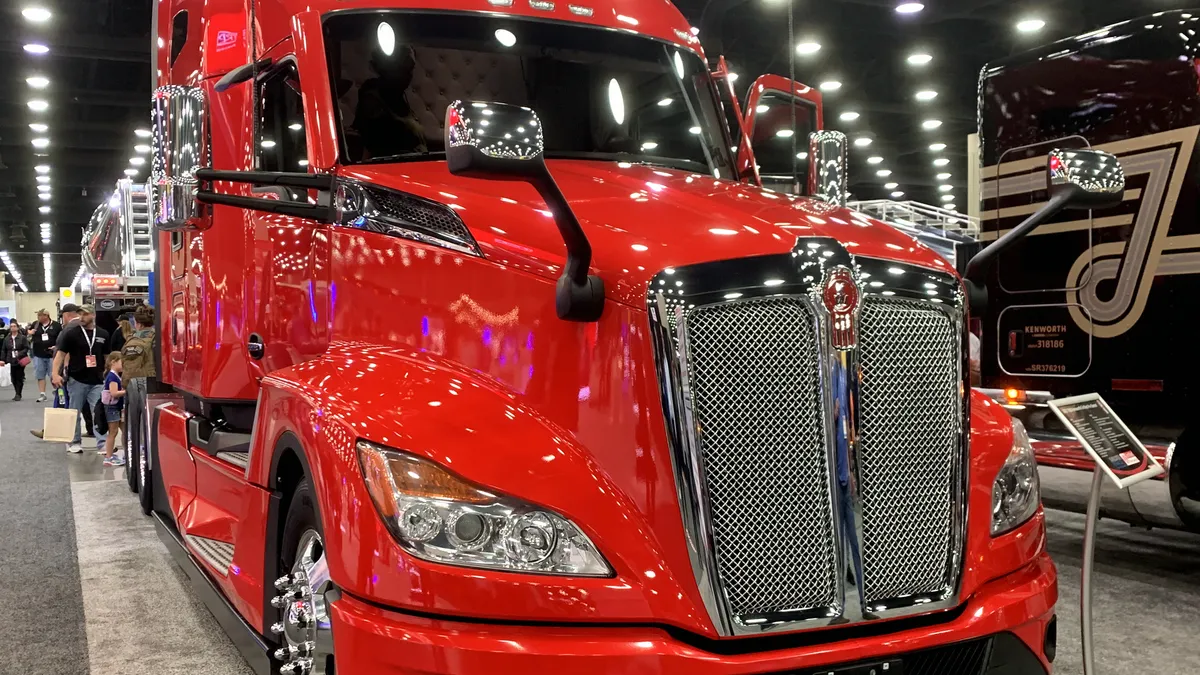The White House wants to help grow the truck driver talent pool.
On Thursday, it announced a series of workforce initiatives, called the Trucking Action Plan, which the Department of Transportation and the Department of Labor would rollout immediately, in the next 30, 60 and 90 days. The plan includes reducing barriers to obtaining CDLs, conducting veteran-focused recruitment, launching a "Driving Good Jobs" initiative and much more.
The Biden Administration convened fleets and associations to talk about the plan on the day of its release.
"Industry participants discussed the steps they were taking to both recruit and retain a diverse workforce into the industry, from women to underrepresented minorities to veterans, and to create a safe and welcoming career paths for these new drivers. Some participants noted how partnerships with unions improved training, productivity, and retention at their companies. They welcomed the steps being taken by the new DOT-DOL joint initiative to support recruitment and retention of a next generation trucking workforce," the White House said.
Here's what eight industry stakeholders said about the plan after the Biden administration's announcement:
The American Trucking Associations
Executive Vice President of Advocacy Bill Sullivan said in a statement:
"We are encouraged that the Biden Administration has not only recognized the importance of adding new and well-trained Americans to the trucking workforce, but has announced a path forward with what we believe will become a robust training opportunity for future commercial truck drivers. Using apprenticeships will help any American pursue a career in this great industry for good wages and benefits in a safe manner without the significant debt many jobseekers can sometimes incur."
The Owner-Operator Independent Drivers Association
President Todd Spencer said via email:
"There are some elements in the plan we support, including further analysis of driver compensation and unpaid detention time. However, it fails to address excessively high driver turnover rates. Attracting and training new drivers won't solve the larger problem of retention. We need to create an environment where truckers can have long, safe and productive careers."
Harbor Trucking Association
CEO Matt Schrap said via email:
"It is very encouraging to see the administration continually recognizing the critical role trucking plays in the overall economic vitality of the U.S. We look forward to the ongoing discussions with the administration and our trucking industry partners in the development and implementation of programs that will help build additional training opportunities to ensure a well-trained trucking workforce for years to come."
The Consumer Brands Association
Tom Madrecki, vice president of supply chain and logistics, issued the following statement:
"Today's announcement from the Biden-Harris administration is an important step toward building more resilient supply chains. Consumer Brands has long argued that supply chain bottlenecks do not end at the ports, and we are pleased to see that the administration is acting on commonsense solutions, like increasing truck driver recruitment efforts in a labor market that is 80,000 drivers short. We urge the administration to continue to work toward solutions, like establishing an "air traffic control" system for ground transport and bringing more flexibility to truck weight requirements, to expand trucking capacity and allow the CPG industry to reliably deliver the essentials consumers rely on every day.
"Solving the supply chain crisis will require dedicated attention from the federal government — attention that cannot wane after the holidays are over."
The National Association of Manufacturers
Ben Siegrist, director of infrastructure, innovation and human resources policy, said via email:
"[The White House's] announcement addresses many longstanding issues in the trucking industry and confirms a commitment from the White House to engage on one of the most pressing concerns affecting our national supply chain. The NAM has long called for sensible action focused on workforce shortages in the industrial supply chain and this plan is a step in the right direction. We look forward to continuing to work with federal partners to support policies that will ease congestion on the nation's roads and transport systems, reduce shipping costs and keep essential goods moving for America's manufacturers."
The National Retail Federation
Vice President for Supply Chain and Customs Policy Jonathan Gold said via email:
"We fully appreciate efforts to address the trucking shortage. We are particularly pleased to see that the administration plans to accelerate the launch of the pilot program for young truck drivers to enter apprenticeship training programs. The pilot program will help steer younger people into careers in truck driving, which is sorely needed as the country continues to experience a severe shortage of truck drivers."
Relay Payments
CEO and Founder Ryan Droege said via email:
"Truck drivers are the backbone of America yet are one of the most underserved groups of people. It's great to see the Whitehouse providing necessary resources but we all have a part to play in solving this issue and it calls for new, innovative thinking."
Sleek Technologies
CIO and Co-Founder Oleg Yanchyk said via email:
"Solving the driver shortage has been a thorn in the trucking industry for decades, and the current supply chain snarl-up and capacity issues have only underlined how shallow the workforce pool is in the trucking industry. So needless to say, any sort of broad-based push to recruit drivers to fill these gaps is certainly more than welcome.
"That said, while it is definitely positive to see this type of public-private partnership, time will tell if this initiative will actually bear fruit. For years trucking companies have been using a variety of tactics – including sign-on bonuses, reduced tuition, and apprenticeship programs – to try and close the talent gap. Unfortunately, none of these have resulted in the robust recruitment that the industry had hoped for. However, with broad-based government support, there is hope that we will begin to see more and more individuals pursuing a career in the driving industry."
This story was updated to include comment from the National Association of Manufacturers.


